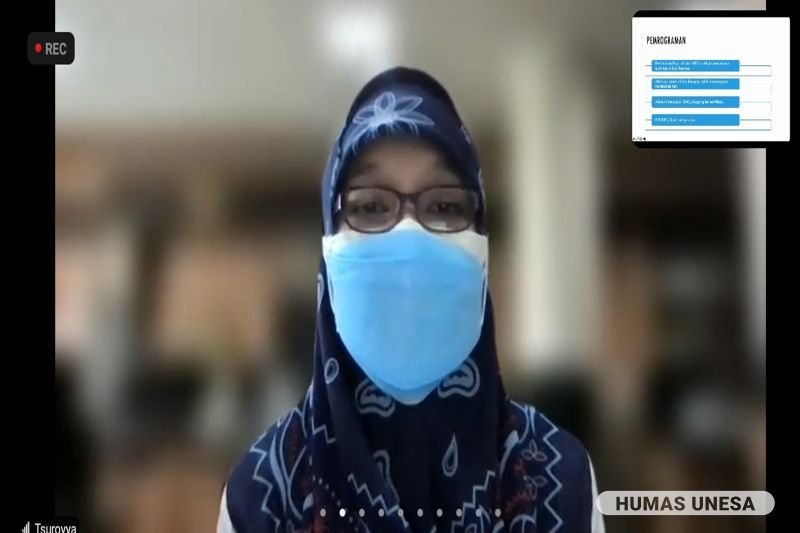
www.unesa.ac.id
Unesa.ac.id, Surabaya–As an educational institution for education personnel (LPTK) that is adaptable to changing times, UNESA continues to improve the curriculum which is of course adapted to the policy of 'Independence of Learning and Independent Campus'. The curriculum was socialized to the leadership of faculties, study programs, LP3, UNESA MBKM units on Wednesday (18/08/2021).
Prof. Dr. Bambang Yulianto, M.Pd Vice Chancellor for Academic Affairs on that occasion said that there are two KRS patterns that can be taken by students in the MBKM curriculum, namely the 602 and 512 patterns. He explained that the 602 pattern is intended for 6 semesters on campus, and 2 semesters off campus. While the 512 pattern means 5 semesters for the Constitutional Court program within the study program, 1 semester for the Constitutional Court outside the study program, and 2 semesters conducted outside the campus.
Regarding the understanding of curriculum structure and course conversion, Dr. Syamsul Sodiq, M.Pd., explained that the curriculum structure for educational, non-educational, and education study programs has its own peculiarities and many differences. There are seven clusters for the MBKM curriculum structure, in each clump also has its own characteristics according to the study program. "Later the study program can adjust to MBKM credits in each semester," he said.
Within these seven clusters, there are practical field courses (PKL) that can be taken by educational students. Meanwhile, the Introduction to Schooling Field (PLP) course should not be taken by non-educational students, but transferred to Teaching Assistance Thematic KKN whose value is almost the same as PLP.
The activity was followed by an explanation of course programming by Tsuroyya, S.S., M.A. There are four aspects of MBKM programming, namely the approval of the head of study program and the first deputy dean for programming off-campus activities, off-campus lecture activities, not programming other courses, KM teaching assistance, and certified internships, PLP, and KKN as well as independent studies. "Hopefully each study program can take advantage of this curriculum change as well as possible to improve the quality of graduates and academic profiles later," he hoped. (Nov/zam)
Share It On:






